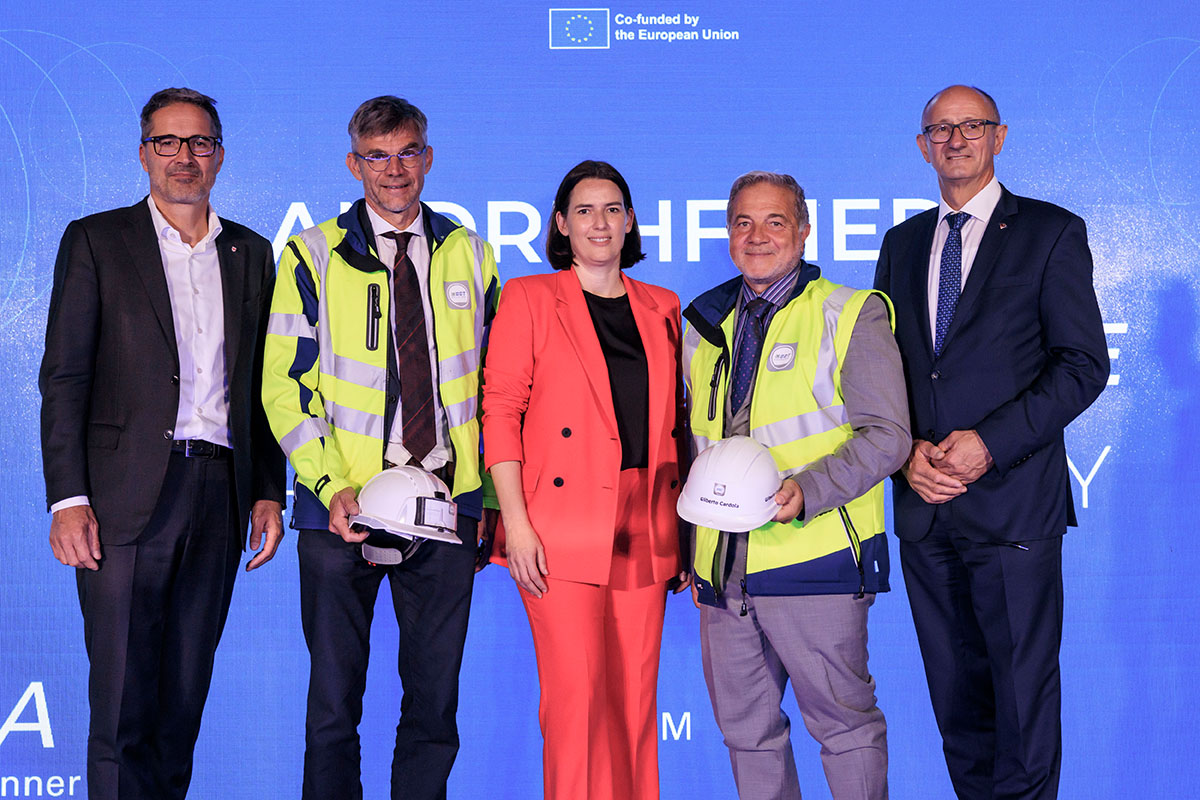“Wilma” and “Olga”, the last TBMs of the Brenner Base Tunnel, have been launched. A ceremony marked the start-up of the last two tunnel boring machines to work on the Brenner Base Tunnel. Working in the Austrian project area, “Wilma” and “Olga” will drive around 7.5 kilometres of the two main tunnels northwards.

The Wilma and Olga TBMs are the last two of the nine tunnel boring machines to be used in the construction of the Brenner Base Tunnel. After inspection at the Herrenknecht factory in Schwanau, Germany, the first components of the two tunnelling machines were delivered to the Austrian construction site “H53 Pfons-Brenner” in April.
Wilma will excavate the west tunnel of the Brenner Base Tunnel northwards, while her “twin sister” Olga will drive the east tunnel in the same direction.
Both tunnelling machines will excavate around 7.5 km in the direction of Innsbruck. Towards the south, on the other hand, drill&blast tunnelling using the NATM method (New Austrian Tunnelling Method NÖT) will be used.
BBT SE and the consortium consisting of Porr Bau GmbH, Marti GmbH Austria and Marti Tunnel AG Switzerland today welcomed numerous guests of honour to the TBM start-up ceremony for the H53 Pfons-Brenner construction lot, the largest in the Austrian project area.
“No fewer than seven tunnelling machines have dug their way through this mountain and today we are proud to celebrate the start-up of the last two. A big thank you and a hearty “Glück auf” goes not only to the BBT SE team, but also to the workers who labour on our construction sites day after day,” said BBT SE CEOs Martin Gradnitzer and Gilberto Cardola.
Another special feature of the last two TBMs of the Brenner Base Tunnel is that they not only excavate these tunnel stretches northwards, but also install the tubbing rings, the precast concrete parts that serve as the inner shell of the tunnel.
Unlike in the neighbouring construction lot H41 Sillschlucht-Pfons, the lack of space on the H53 Pfons-Brenner construction site prevented production of the tubbing rings directly on the site itself. By transporting the rings by rail, however, around 40,000 lorry journeys can be avoided, thus minimising the environmental impact.
The first rings were delivered to the construction site at the beginning of July. During the operating period of the two TBMs Wilma and Olga, around 54,000 rings, which are produced at the Max Bögl plant in Senghenthal, Bavaria, will be installed in the two main tunnels.
Basic parameters of the TBMs:
- Diameter of the cutting head: 10.37 m
- Advance power of the cutting head drive: 4550 kW
- Operating torque of the cutting head drive: 26400 kNm
- Total weight (TBM incl. main drive): approx. 2600 tonnes
- Weight of the cutting head: 260 tons
- Total length (TBM incl. main drive): approx. 183 m
- Number of transports: approx. 170
- Number of individual components (TBM incl. main drive): approx. 80,000
On April 4, 2023, the contract for the construction lot “H53 Pfons-Brenner” was awarded to a bidder consortium consisting of Porr Bau GmbH, Marti GmbH Austria and Marti Tunnel AG Switzerland.
The works for the construction of the tunnels on the last construction lot of the Brenner Base Tunnel were thus contracted. The contract for what is currently the largest construction lot on Austrian territory totals 959 million euros. The duration of the work for this project section is estimated at 70.5 months.
The Brenner Base Tunnel (BBT) connecting Austria and Italy runs for 64 km between Tulfes/Innsbruck and Fortezza, making it the longest underground railway stretch in the word. The BBT ends in Innsbruck in the existing railway bypass tunnel, which ends in Tulfes. A new rescue tunnel is being built running parallel to the bypass. The two-tube tunnel system between Innsbruck and Fortezza is 55 km long.
Share on:



